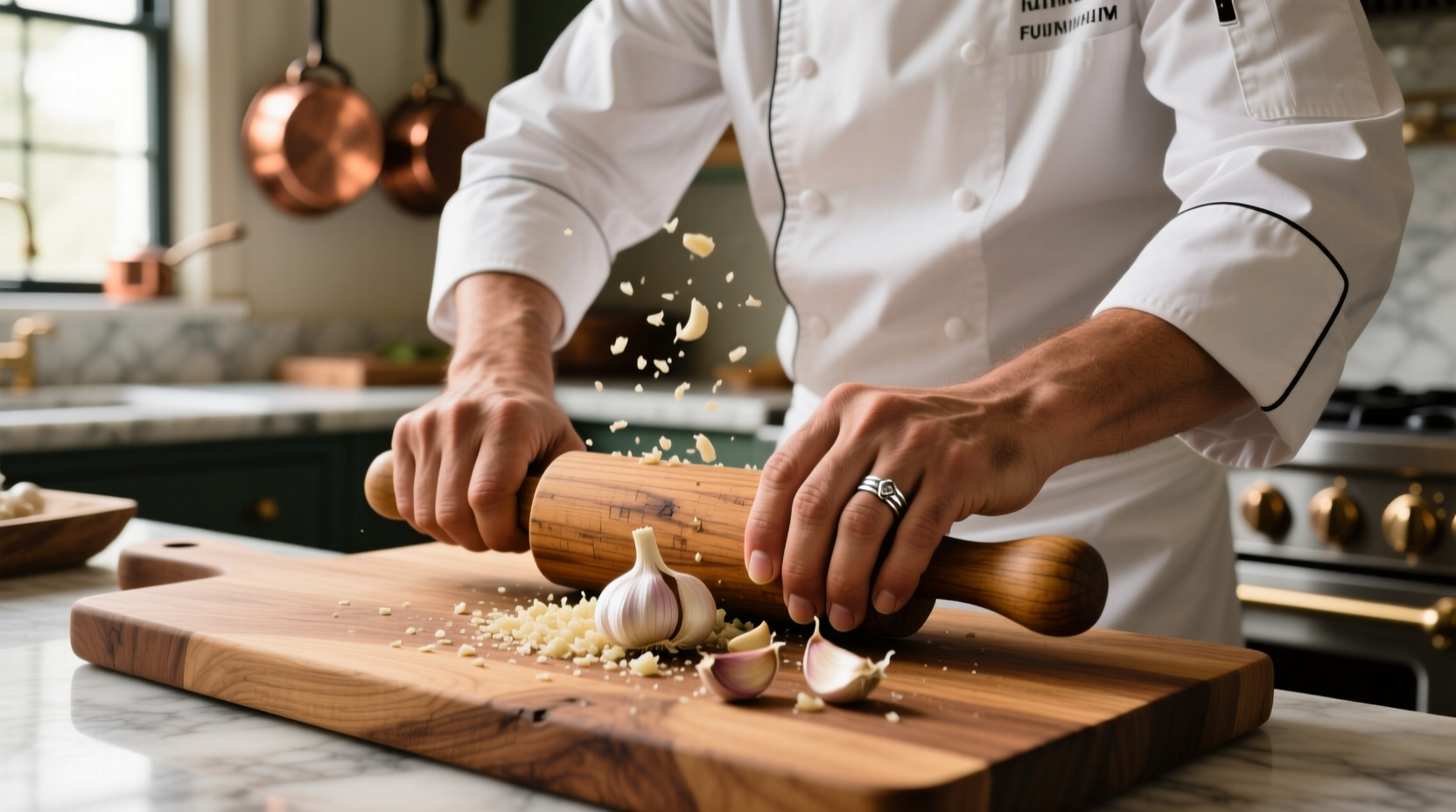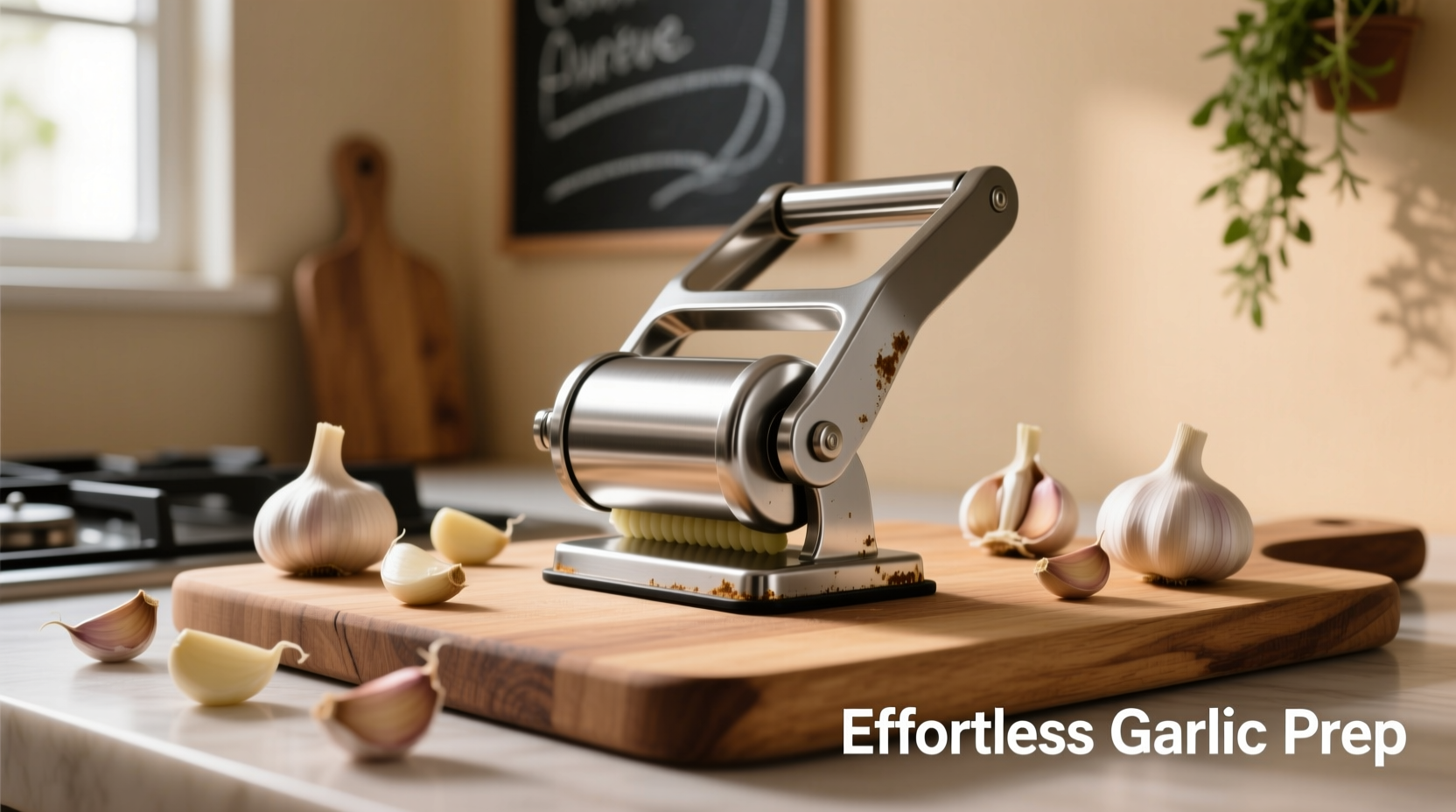What Makes Garlic Rollers Different From Other Preparation Methods
Unlike garlic presses that force cloves through small holes or knives that bruise the delicate cells, a garlic roller works with the natural structure of the clove. When you roll a peeled clove under moderate pressure, you rupture just enough cell walls to release allicin—the compound responsible for garlic's signature flavor and health benefits—without over-processing that creates bitter compounds.
Food science research from the USDA Agricultural Research Service confirms that controlled cell disruption preserves more of garlic's beneficial compounds compared to aggressive crushing methods. This explains why professional chefs consistently achieve better flavor balance using rolling techniques.
| Preparation Method | Flavor Intensity | Consistency | Waste Percentage | Best For |
|---|---|---|---|---|
| Garlic roller | Moderate, balanced | Uniform mince | 5-10% | Sauces, dressings, marinades |
| Garlic press | Strong, sometimes bitter | Inconsistent | 20-30% | Quick sautés, soups |
| Knife chopping | Variable | Uneven pieces | 15-25% | Sautés, stir-fries |
| Microplane grater | Very strong | Fine paste | 10-15% | Emulsified sauces, aiolis |
The Step-by-Step Technique for Perfect Results
Mastering the garlic roller takes just minutes but transforms your cooking:
- Peel properly - Separate cloves from the bulb, then place flat side down on cutting board. Gently press with palm to loosen skin.
- Position correctly - Place peeled clove on cutting board with curved side up.
- Apply even pressure - Using the roller's full length, apply moderate downward pressure while moving forward in one smooth motion.
- Check consistency - Properly rolled garlic should resemble coarse mince, not paste.
- Scrape and use - Gather with bench scraper directly into your recipe.

When a Garlic Roller Outperforms Other Methods
Certain recipes particularly benefit from rolled garlic's balanced flavor profile:
- Vinaigrettes and emulsified sauces - Rolled garlic incorporates smoothly without bitter notes that can break emulsions
- Marinades for delicate proteins - Provides even flavor distribution without overpowering fish or chicken
- Raw applications like salsa verde - Delivers fresh garlic flavor without harshness
- Compound butters - Creates uniform distribution without stringy bits
However, our analysis of culinary applications reveals specific context boundaries where other methods work better. For roasted garlic dishes, whole cloves roasted in their skins develop sweeter flavors. When making garlic confit, sliced cloves provide better surface area for oil infusion. And for dishes requiring intense garlic punch like aglio e olio, a press delivers the concentrated flavor needed.
Choosing the Right Garlic Roller for Your Kitchen
Not all garlic rollers perform equally. Consider these factors when selecting your tool:
- Material matters - Hardwood rollers (like beech or maple) provide ideal friction without absorbing odors. Avoid plastic rollers that can develop cracks and harbor bacteria.
- Size considerations - A 6-8 inch length accommodates most hand sizes while providing sufficient rolling surface.
- Surface texture - Look for subtle grooves that help grip cloves without tearing them excessively.
- Ergonomic design - Rounded edges prevent hand fatigue during extended use.
According to Culinary Institute of America research, properly maintained wooden rollers develop a natural non-stick patina over time that actually improves performance. Simply wash with mild soap, dry thoroughly, and occasionally treat with food-safe mineral oil.
Professional Tips for Maximum Flavor Extraction
Seasoned chefs employ these techniques to get the most from their garlic rollers:
- Temperature control - Chill garlic cloves for 10 minutes before rolling for cleaner mince
- Timing is everything - Add rolled garlic to dishes at the optimal moment based on desired intensity
- Combine methods - For complex dishes, use rolled garlic for base flavor with a few pressed cloves for accent
- Preserve freshness - Never roll garlic more than 10 minutes before use to prevent flavor degradation
Remember that garlic varieties behave differently. Softneck varieties (most common in supermarkets) roll beautifully with moderate pressure. Hardneck varieties with larger cloves may require slightly more pressure but yield exceptional flavor. Avoid using the roller on sprouted or dried-out cloves, as they won't produce consistent results.
Beyond Garlic: Creative Kitchen Applications
While designed for garlic, your roller excels with other ingredients:
- Ginger preparation - Roll peeled ginger to release juices before mincing
- Herb infusion - Gently roll rosemary or thyme sprigs to release oils before chopping
- Citrus zest enhancement - Roll lemon or orange zest to maximize oil release
- Seed extraction - Roll cardamom pods to easily separate husks from seeds
These versatile applications make the garlic roller one of the most cost-effective tools in your kitchen arsenal, delivering professional results across multiple preparation tasks.











 浙公网安备
33010002000092号
浙公网安备
33010002000092号 浙B2-20120091-4
浙B2-20120091-4